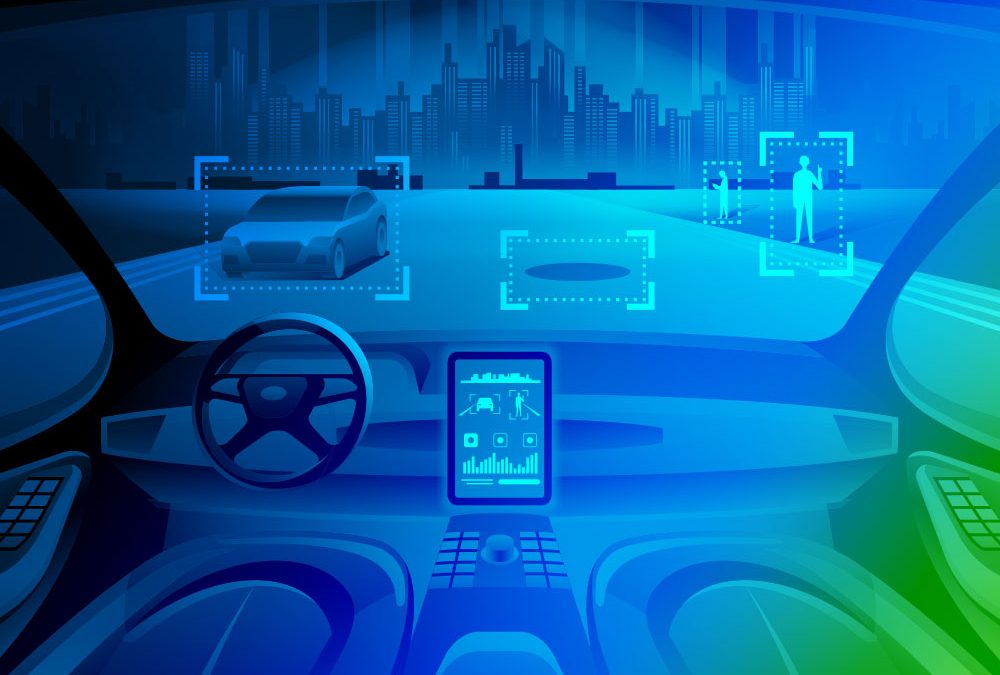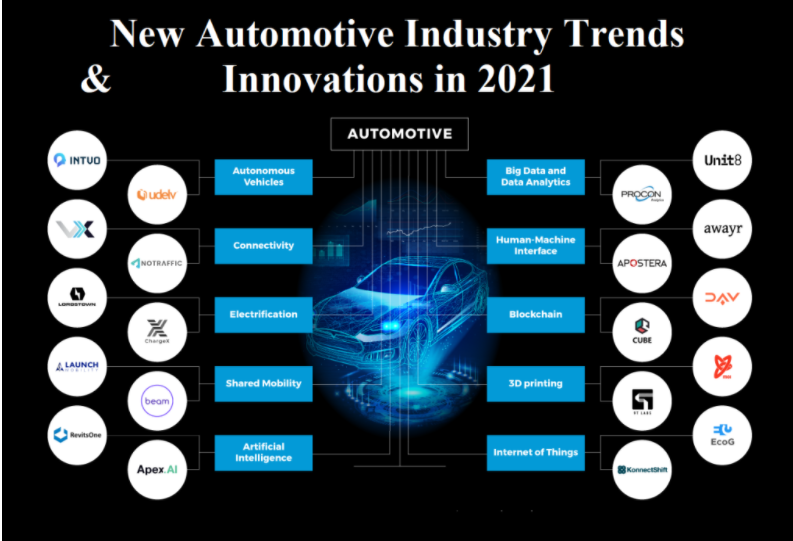A comprehensive survey of automotive industry trends to look forward to in 2021 reveals information-centric technologies playing a central role in the future of the industry. The industry is adopting new technologies in its operations at an unprecedented scale. In addition to technologies such as artificial intelligence (AI) and big data & analytics that have been around for while, newer technologies such as the internet of things (IoT) and blockchain also find numerous applications in automotive.
- Electrification
The depleting fossil fuel reserves and the harm to the environment caused by their use call for promoting the use of electric vehicles (EVs). For greater adoption, EVs need to address issues such as high price, poor battery, inadequate charging infrastructure, fleet electrification, as well as powering renewable energy-based charging grids.

Lordstown Motors

The US-based Startup Lordstown Motors Corps makes an all-electric pickup truck. The truck, Endurance TM, is designed to be a sturdy work vehicle and comes with fewer moving parts compared to traditional commercial vehicles, thus enabling easier maintenance. It features 4 hub electric motors to provide a four-wheel drive and is capable of traveling more than 250 miles (400 km) on a single charge.
ChargeX

German startup ChargeX offers a modular EV charging solution that converts parking spaces into charging stations. The startup’s platform, Aqueduct, is easy to install, has 4 charging modules with up to 22kW, provides monthly reports, and uses a Typ2 charging cable. The solution recognizes the power requirements of every car and automatically controls the charging speed for each vehicle.
4. Shared Mobility

With connected vehicles, new business models have come up that focus on shared mobility as an alternative to traditional vehicle ownership. This enables mobility-as-a-service (MaaS) and discourages unused vehicles. Such solutions meet the requirements of a city or a business without adding new vehicles, thus reducing waiting time for fleets and pollution caused by petrol or diesel vehicles.
Launch Mobility

The US-based startup Launch Mobility develops a platform for a range of shared mobility solutions. The platform LM Mission ControlTM offers free-floating or station-based car sharing, advanced shuttle services, shared dockless scooters, keyless rental programs, and peer-to-peer shared mobility. The LM Mission ControlTM dashboard allows business users to manage their fleets. Further, their drivers use out-of-the-box or white-labeled apps to manage reservations or remotely access vehicles.
Beam

Singapore-based startup Beam focuses on e-scooters to promote shared mobility in the Asia-Pacific region. Their scooters use an aviation-grade aluminum frame and are customized for sharing, safety, reliability, and durability. Users discover the nearest Beam scooter on the app and park it in visible public spots after the ride. Further, the micro-mobility platform offers a sustainable alternative to short-distance rides and helps regulate traffic flow in cities.
5. Artificial Intelligence (AI)

Artificial intelligence technologies such as machine learning, deep learning, and computer vision find applications in robotic automation within the automotive industry. These guide self-driving cars, manage fleets, assist drivers to improve safety and improve services such as vehicle inspection or insurance. AI also finds applications in automotive manufacturing, where it accelerates the rate of production and helps reduce costs.
RevitsOne
Indian startup RevitsOne offers AI-powered fleet-management software that is suitable for fleets of varying sizes. The startup’s vehicle management system provides insights into speed, running vitals, and health information. Drivers benefit from Voicera ID, a voice-based virtual assistant that helps them keep track of the information they need. Additionally, the onboard speed recorder limits the speed to discourage dangerous driving behaviors.
Apex AI

Source: Apex AI
The US-based startup Apex AI enables automotive companies to implement complex AI solutions. Apex.OS runs on automotive electronic control units (ECUs) and offers robust, reliable, and secure APIs to develop autonomous mobility solutions. ApexAutonomy offers modules to build 3D perception, localization, and control to enable autonomous vehicles. Lastly, MARV. Automotive is a configurable and extensible data management platform that reliably transmits data from the vehicle to the cloud.
More is Next Blog….

